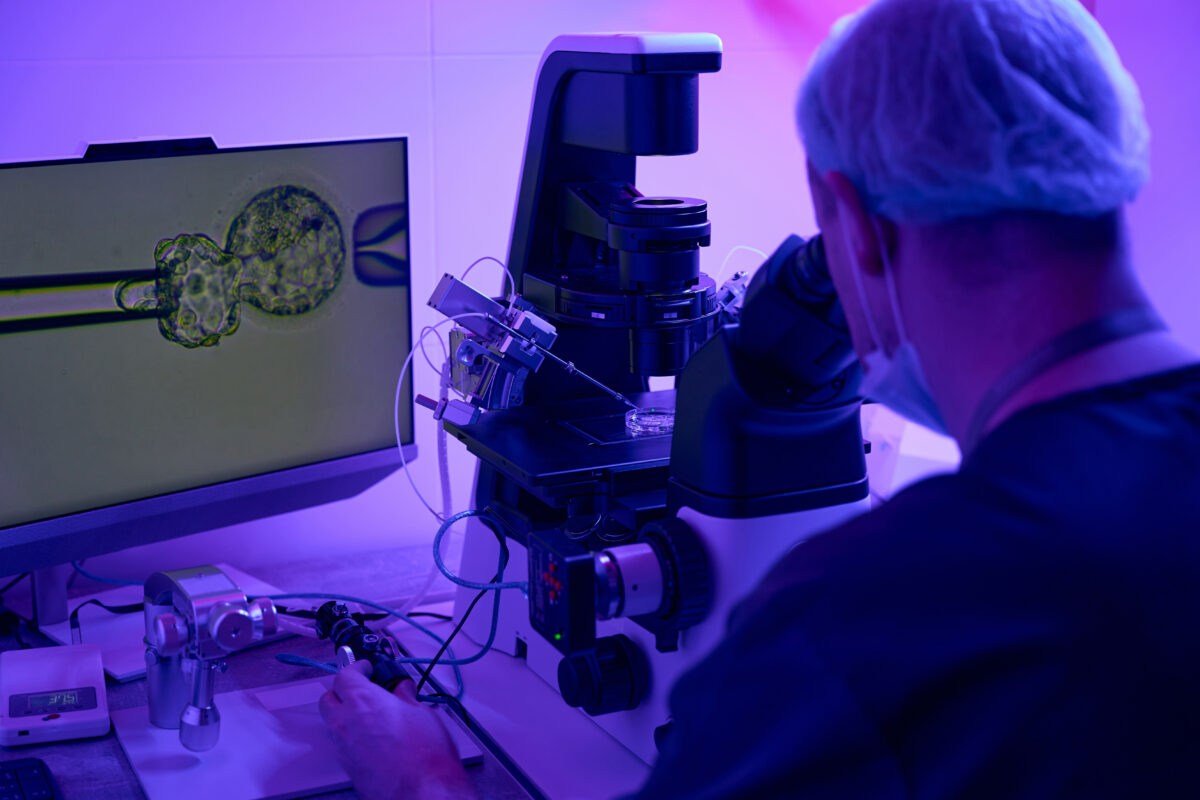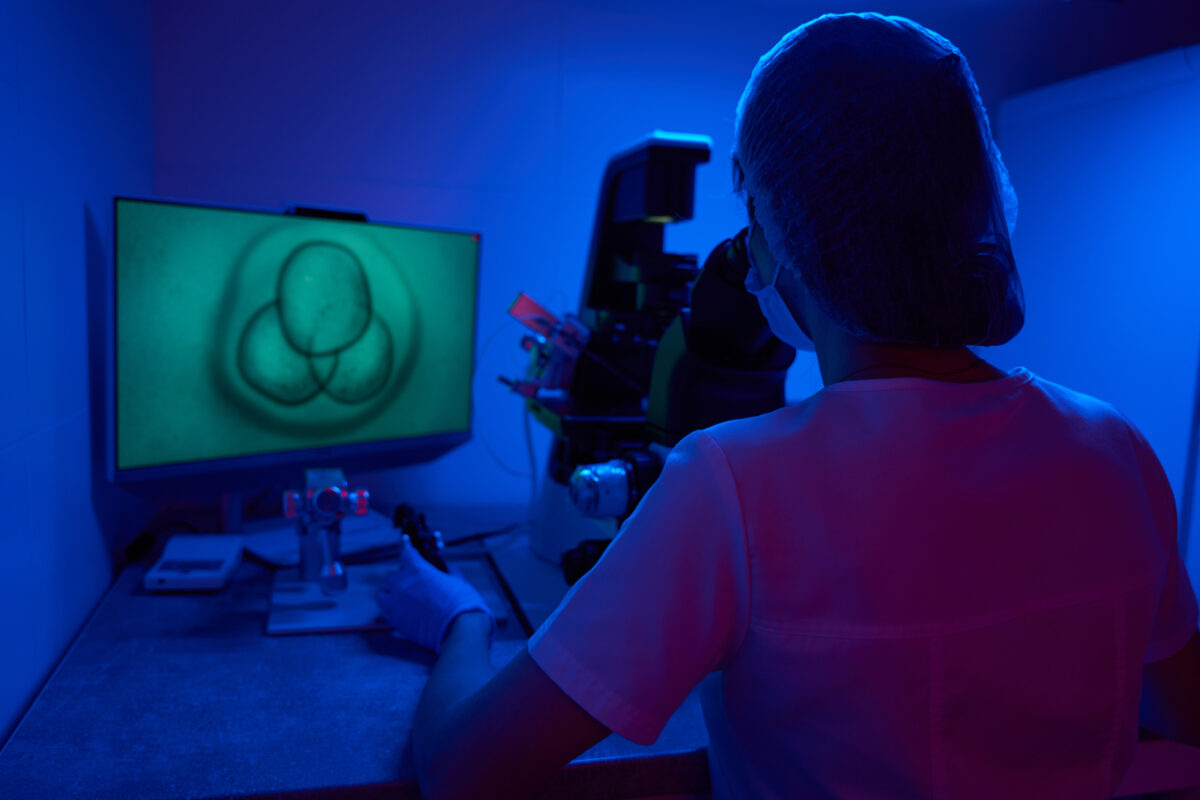Endometrial receptivity is one of the important factors in achieving a successful pregnancy through in vitro fertilization (IVF) treatments. Although much attention is often paid to the quality of the eggs and embryos, the ability of the endometrium to receive and sustain the embryo is crucial to the success of the procedure.
That is why, for those undergoing IVF treatment, it is essential to understand how to optimize this receptivity and what measures can be taken to improve the chances of effective implantation.
Assisted reproduction techniques have advanced significantly in recent decades, allowing many people to fulfill their desire to have children. However, endometrial receptivity is still a factor that can make a difference in treatment success. There are several strategies that can help prepare the endometrium so that it is in optimal condition, thus increasing the chances of achieving pregnancy.
What is endometrial receptivity?
The term “endometrial receptivity” refers to the ability of the endometrium, the inner layer of the uterus, to host and implant an embryo. This period of receptivity is known as the implantation window, a specific phase of the menstrual cycle in which the endometrium reaches its optimal conditions to receive an embryo. This window varies from person to person, and it is crucial to know about it in order to maximize the chances of success in an IVF treatment.
The preparation of the endometrium involves a series of hormonal and physiological processes that allow this tissue to be in the right state to sustain a pregnancy. When the endometrium is not receptive, implantation may not occur or the pregnancy may not be maintained, underscoring the importance of optimizing this phase of treatment.
Strategies to improve endometrial receptivity

There are different methods that can improve endometrial receptivity and, with it, increase the chances of success in IVF. Below are some strategies that are commonly used in medical practice:
1. Hormonal Adjustment
One of the most common interventions to improve endometrial receptivity is adjustment of hormone treatment. Medications that mimic the body’s natural hormones, such as estrogen and progesterone, can help prepare the endometrium for implantation. These hormonal treatments are carefully adjusted according to each person’s response, so that the endometrium reaches its ideal thickness and texture during the implantation window.
Progesterone is especially important in this process, as it promotes the development of a proper endometrial structure. Hence, all IVF treatments include specific hormone supplementation to ensure that the endometrium is in its optimal phase.
2. Healthy diet and lifestyle
Although it may seem surprising, factors such as diet and lifestyle have a significant impact on endometrial health. Consuming foods rich in antioxidants, omega-3 fatty acids, and essential vitamins can support a more receptive uterine environment. Maintaining a balanced and varied diet, focused on fresh and nutrient-rich foods, can be beneficial for those looking to optimize their chances of success in an IVF treatment.
Stress and lack of sleep can also negatively affect endometrial receptivity. Therefore, reducing stress levels through relaxation techniques, yoga or mindfulness, along with the adoption of proper sleep habits, can make all the difference in preparing the body for pregnancy.
3. Optimizing blood flow to the uterus
Good blood flow to the uterus is essential for the endometrium to receive the nutrients and oxygen needed for implantation. There are several techniques that can help improve this flow, such as moderate exercise, acupuncture, and specialized physical therapy. The practice of low-intensity exercise, such as daily walks or yoga, helps to maintain good circulation without negatively affecting the treatment.
Acupuncture, in particular, has gained popularity as a supplement in fertility treatments, as it can stimulate blood circulation and reduce stress, thus boosting endometrial receptivity.
4. Advanced diagnostic tests
In some cases, fertility specialists recommend additional testing to assess endometrial receptivity. Among these tests, the ERA Test stands out, which allows you to know precisely the window of implantation of the endometrium in each person. This information is valuable for adjusting the timing of the embryo transfer and ensuring that it is performed at the most appropriate time, increasing the chances of success.
5. Use of specific supplements
In addition to hormonal adjustment, the use of specific supplements that can promote the receptivity of the endometrium is sometimes recommended. For example, vitamin D, omega-3, and certain antioxidants have been shown to have a positive effect on uterine health. These supplements should be indicated by a fertility specialist, who will evaluate each case individually.
What to expect when optimizing endometrial receptivity?
Improving endometrial receptivity not only increases the odds of IVF success, but can also bring benefits in the overall quality of pregnancy. A healthy endometrium is essential for the correct implantation and development of the embryo, which in turn reduces the chances of complications during pregnancy. Additionally, taking steps to optimize endometrial receptivity can provide a sense of control and hope to those undergoing treatment, allowing for a more positive experience.
Although not all interventions are suitable for all people, having the accompaniment of a fertility specialist is essential to define a strategy adapted to each case. With current techniques and knowledge, it is possible to address the challenges of endometrial receptivity in a more personalized and effective way, increasing the chances of achieving the dream of a pregnancy.
If you are thinking of having a baby, keep in mind that Fertivida, we have a specialized team to accompany each step of the process, offering support and guidance at all times.





